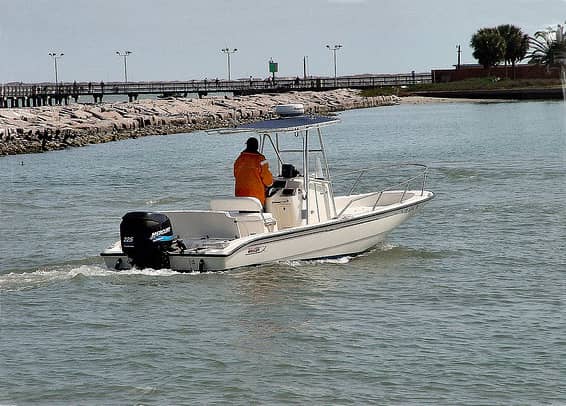Fraudulent Catch in Texas Kingfish Tourney Keeps Officials on Their Toes
OutdoorHub Reporters 10.04.12

The case of seven people accused of fraudulently entering fish in a Texas tournament brings to light what some are saying is a common practice in fishing tournaments across the United States.
Four female anglers participating in the early August Ladies Kingfish Tournament in South Padre Island, Texas, were observed to be turning in fish with red discoloration on their tails, bellies and rear fins. The discoloration is an indication that the fish were not caught during the tournament, but rather had been kept alive in a holding device for days before the tournament commenced.
An investigation began, witnesses came forward and confessions were made. One week after the tournament, the four women were arrested as well as the captain of the boat and two other men. They had won a $5,000 cash prize for second place. They now face a third-degree felony for fraud in a fishing tournament. If convicted, they could serve up to 10 years in state prison and pay a maximum fine of $10,000.
Fraudulent catches have been such a significant problem that some tournament organizers and wildlife officials are forced to put measures in place to prevent cheating. Wildlife officials with the Texas Parks and Wildlife Department (TPWD) now sometimes conduct polygraph tests asking winners if they cheated and they keep a close eye on those suspected of cheating.
“We’re more conscientious in looking for this now than we were five or six years ago,” said Kurt Kelley, a game warden with the Texas Parks and Wildlife Department, to the New York Times. “To me, it’s the same thing as somebody going in and robbing a bank, or going into Walmart and shoplifting. They’re trying to cut the corners so they can win. It’s fraud. It gives tournament fishermen a black eye.”
Other fishermen and women are known to catch fish before a tournament begins to stock their “catch” for that day. Some anglers have been reported to stuff fish with heavy objects or water to increase their weight. Others have clipped tails to meet length limits.
Texas has had laws against fishing tournament fraud in place since 1985 which state, “It is illegal to enter fish in a saltwater or freshwater fishing tournament that have had the length or weight altered, were taken unlawfully, or are fraudulently misrepresented.” Kelley has already investigated 30 tournament fraud cases during his 13 years with the agency.

